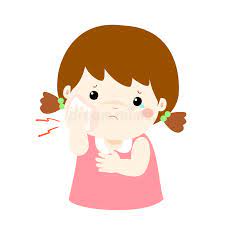A toothache refers to pain in or around a tooth, often accompanied by inflammation that can be difficult to ignore. This pain typically originates from a specific area and may spread to the jaw, head, or ear. While minor toothaches can result from temporary gum issues, more severe cases often indicate underlying dental problems that require attention. Each tooth contains a pulp, which houses nerves, tissues, and blood vessels. The nerves in the pulp are highly sensitive, and when irritated or infected, they can cause significant pain.
Types of Toothaches:
- Persistent, dull ache.
- Sensitivity to hot and cold temperatures.
- Sharp, sudden pain.
- Severe, throbbing pain.
Signs and Symptoms:
Tooth pain (of any type mentioned above) or pain that occurs only with applied pressure.
Headache, jaw pain, or earache.
Swelling around the affected tooth.
Pus discharge from an infected tooth.
Bad breath.
Swelling in the jaw or face.
Redness near the affected tooth.
When to See a Dentist:
If your toothache lasts more than three days or if you notice bleeding from the painful area, consult a dentist as soon as possible. Severe pain or bleeding should not be ignored, as dental health is closely connected to overall well-being, including brain function.
Common Causes of Toothaches:
Bacterial infection inside the tooth (abscessed tooth).
Gum infections.
Repetitive tooth movements, such as grinding, clenching, or excessive chewing.
Tooth extraction.
Cavities.
Bruxism (teeth grinding, usually during sleep).
Preventive Measures:
Maintain good oral hygiene by brushing at least twice daily.
Floss daily to remove food particles and plaque.
Avoid chewing gum and similar products excessively.
Limit consumption of carbonated and sugary drinks.
Use fluoride toothpaste for added protection.
Rinse or brush lightly after meals.
Use mouthwash at least once a day.
Visit your dentist twice a year for regular checkups.
Treatment Options:
The treatment for a toothache depends on its underlying cause. After an examination, your dentist may recommend an injection near the affected tooth, prescribe antibiotics, or suggest other medications. In some cases, minor toothaches resolve on their own without medical intervention.
Home Remedies to Manage Toothache:
Rinse your mouth with warm salt water to reduce irritation.
Apply a cold compress to the affected area.
Use over-the-counter pain relievers after consulting a healthcare professional.
By following these preventive measures and seeking timely dental care, you can maintain optimal oral health and prevent serious complications.
|

